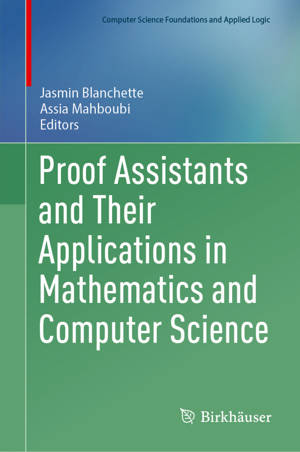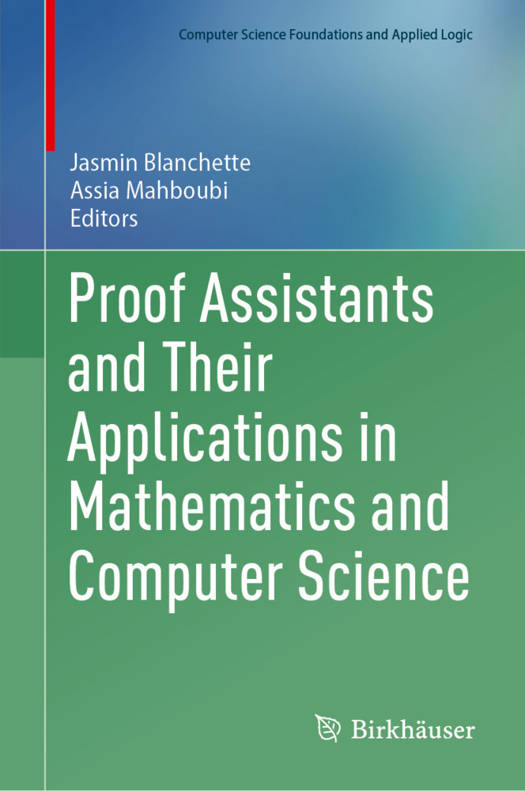
- Afhalen na 1 uur in een winkel met voorraad
- Gratis thuislevering in België vanaf € 30
- Ruim aanbod met 7 miljoen producten
- Afhalen na 1 uur in een winkel met voorraad
- Gratis thuislevering in België vanaf € 30
- Ruim aanbod met 7 miljoen producten
Zoeken
Proof Assistants and Their Applications in Mathematics and Computer Science
€ 79,45
+ 158 punten
Omschrijving
Proof assistants are computer programs that help users formally describe mathematical statements and proofs, making them amenable to mechanical checking. Today they are used to verify operating systems, compilers, and cryptographic protocols, as well as landmark results in mathematics such as the Feit-Thompson theorem or the Kepler conjecture. Contemporary proof assistants rely on a sophisticated interaction between theoretical investigations in metamathematics and the efficient implementation of a portfolio of algorithms, without which these systems would not usable on a large scale. During the last decade, the use of proof assistants has grown steadily, and they are now at the same time a research topic in its own right and a tool for researchers in other domains. Yet no reference book is available today that covers the entire domain. This book is an introduction and reference for the various topics related to the underlying logical formalisms, architectures, and applications.
The main audience is graduate students entering the field of interactive theorem proving, the secondary audience is more established researchers in computer science, mathematics, and philosophy, as well as practicing engineers, engaged with proof assistants.
The main audience is graduate students entering the field of interactive theorem proving, the secondary audience is more established researchers in computer science, mathematics, and philosophy, as well as practicing engineers, engaged with proof assistants.
Specificaties
Betrokkenen
- Uitgeverij:
Inhoud
- Aantal bladzijden:
- 390
- Taal:
- Engels
- Reeks:
Eigenschappen
- Productcode (EAN):
- 9783031851896
- Verschijningsdatum:
- 12/02/2026
- Uitvoering:
- Hardcover
- Formaat:
- Genaaid
- Afmetingen:
- 155 mm x 235 mm

Alleen bij Standaard Boekhandel
+ 158 punten op je klantenkaart van Standaard Boekhandel
Beoordelingen
We publiceren alleen reviews die voldoen aan de voorwaarden voor reviews. Bekijk onze voorwaarden voor reviews.







